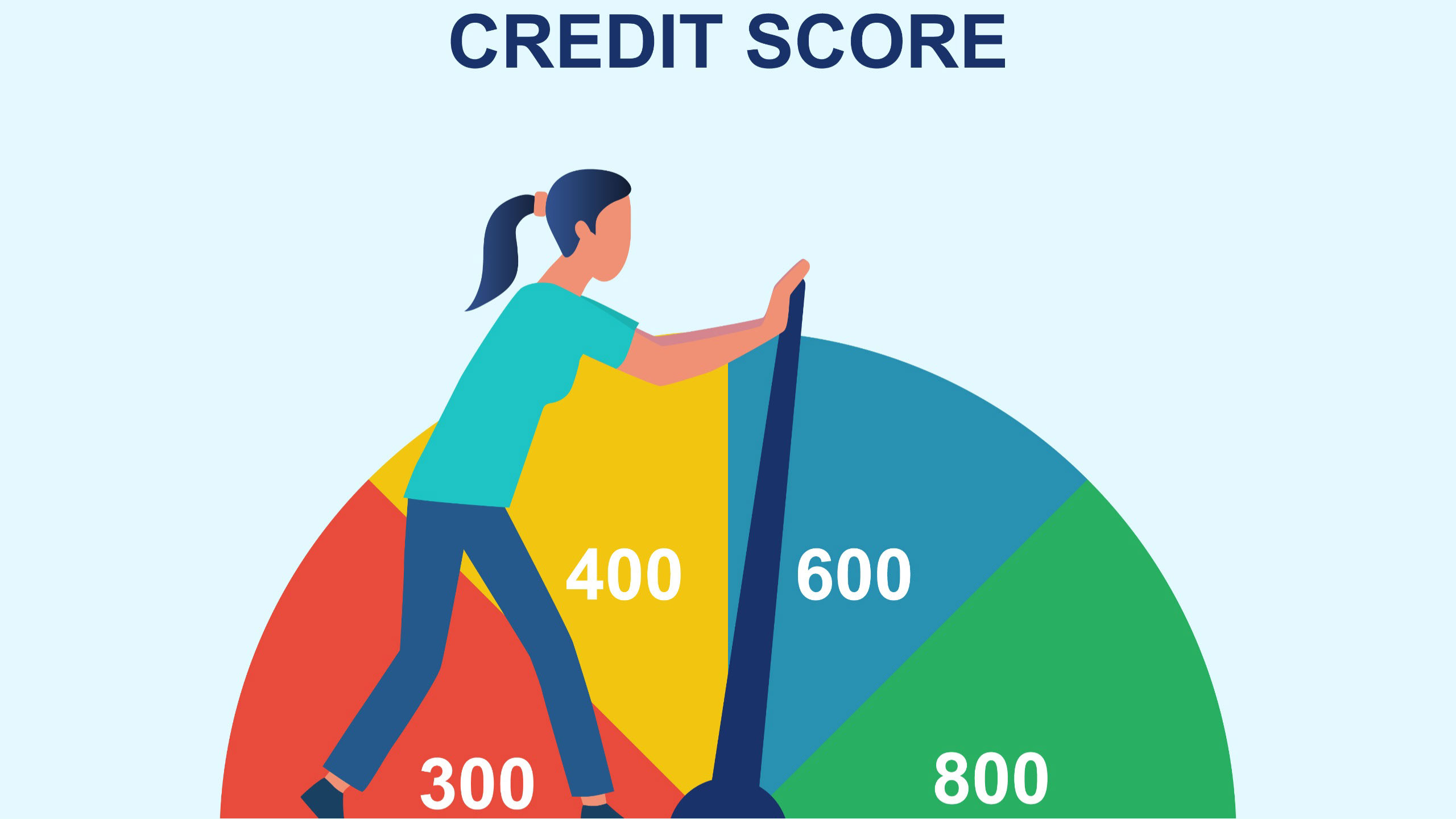Credit scores play a crucial role in shaping your financial landscape. Gaining insights into the calculation process, routinely checking your credit report, and actively working to enhance your creditworthiness are key steps towards securing a more stable financial future. By exploring the details of credit scores, equip yourself to make informed decisions that contribute positively to your financial well-being.

Table of Contents
Creditors employ credit scoring systems to assess your creditworthiness for credit cards, auto loans, and mortgages. Beyond traditional lenders, phone companies and insurance providers, both for autos and homes, also use credit scores into their decision-making processes. These scores, combined with other factors, influence their choice of whether to offer you a policy or service. Credit scores play a big role in shaping the terms of the credit extended to you. A higher credit score positions you as a lower financial risk in the eyes of businesses, increasing the likelihood of obtaining credit or securing it at more favorable terms. Essentially, your credit score serves as a key determinant in various financial transactions, impacting both access to credit and the associated terms.
What is a credit score?
What precisely is a credit score? It’s a numerical representation that serves as an evaluation of your likelihood to repay a loan and meet payment deadlines. Lenders meticulously calculate this score by delving into your credit report, examining your history of repaying borrowed funds, the array of loans you’ve managed, the duration of specific lines of credit or loans, and the overall extent of your indebtedness. While there are different scoring systems, the widely adopted FICO score is the preferred choice for most lenders. This numerical score helps businesses make informed decisions about extending credit to you.
How do I find out what my credit score is?
Finding your credit score differs from accessing your free annual credit report. Unfortunately, a Free annual credit score isn’t universally available. Some credit bureaus may give free credit scores, while certain companies provide them as part of a paid credit monitoring service. This service not only supplies your credit score but also inspects your credit report on your behalf. The tricky part is figuring out if there are any fees for credit monitoring. When you come across offers for free credit scores, it’s important to check the details closely to see if there are any charges for the credit monitoring service that comes with it. Be cautious to avoid unexpected costs while trying to understand your credit score.
Is it necessary to check my credit score?
Before shelling out any money to obtain your credit score, take a moment to consider if it’s truly essential for you. Your credit score is essentially a reflection of your credit history. If you’re confident that your credit history is in good shape, chances are your credit score will be too. While it can be intriguing to know your score, you have the freedom to decide whether paying for it is worth it. Typically, credit scores fall within the range of 300 to 850.
- A higher score implies “good” credit, signaling to businesses that you pose less of a financial risk. This, in turn, enhances your likelihood of securing credit – be it a loan, credit card, or insurance – and often results in more favorable terms.
- A lower score indicates “bad” credit, making it more challenging for you to obtain credit. If you do manage to secure credit, it’s likely that you’ll face higher interest rates.
Some insurance companies utilize credit report information, alongside other factors, to assess the probability of you filing an insurance claim and the potential amount of that claim. This information influences their decision on whether to provide you with insurance coverage and the premium they charge. These credit scores used by insurance companies are occasionally referred to as “insurance scores” or “credit-based insurance scores.”
What is the connection between my credit report and my credit score?
Ever wondered how your credit report and credit score are intertwined? Well, creditors use your credit score to make decisions about whether to grant you credit and the associated terms, including the interest rate for borrowed money. Your credit score is essentially calculated using the information found in your credit report.
Your credit report serves as a comprehensive record, detailing your payment history and information about the debts you owe. It plays a pivotal role in many credit scoring systems, underscoring the importance of ensuring its accuracy. Fortunately, federal law grants you the right to receive a free copy of your credit report from each of the three nationwide credit bureaus once every 12 months.
There’s more good news – the three credit bureaus have permanently extended a program allowing you to check your credit report from each bureau once a week for free at AnnualCreditReport.com.
To order your free annual credit report from one or all of the nationwide credit bureaus, you can:
- Visit AnnualCreditReport.com
- Call toll-free at 877-322-8228
- Complete the Annual Credit Report Request Form and mail it to:
Annual Credit Report Request Service
P. O. Box 105281
Atlanta, GA 30348-5281
Individuals in the U.S. can access six free credit reports per year through 2026 by visiting the Equifax website or calling 1-866-349-5191. This is in addition to the one free Equifax report (plus your Experian and TransUnion reports) obtainable at AnnualCreditReport.com. Staying informed about your credit report ensures you have a clearer picture of your financial standing.
How do credit scoring systems work?
Credit scoring systems can be complex, and they differ among various businesses. Some systems may look at certain factors, but most scoring methods evaluate details from your credit report, such as:
- Payment History: Timely bill payments positively impact your score, but late payments, accounts in collections, or bankruptcy can have a negative effect.
- Credit Utilization: Many scoring systems examine the ratio of your outstanding debt to your credit limits. Being close to your credit limit may adversely affect your score.
- Credit History Length: Generally, scoring systems consider the length of your credit history. While a short credit history may impact your score, consistent on-time payments and maintaining low balances can mitigate this.
- Recent Credit Inquiries: Examining recent credit report inquiries helps scoring systems assess whether you’ve recently applied for credit. Too many recent applications may have a negative impact, although certain types of inquiries, like those for account monitoring or pre-screened credit offers, are typically not counted against you.
- Number and Types of Credit Accounts: While having established credit accounts is generally positive, an excess of credit card accounts could potentially harm your score. Additionally, the type of credit accounts you hold is considered; for instance, certain scoring systems might view debt consolidation loans unfavorably compared to loans for major purchases like homes or cars.
Credit scoring models compare this information against the credit behaviors of individuals with similar profiles and assign a score accordingly. These models may incorporate data beyond your credit report. For instance, when applying for a mortgage loan, factors such as your down payment amount, total debt, and income are taken into account, alongside other relevant considerations.
How can I boost my credit score?
Upon receiving your credit score, you may also receive tips on how to boost it. While achieving a significant improvement might take some time, it’s definitely possible. In most scoring systems, concentrate on paying your bills promptly, reducing any existing balances, and avoiding taking on new debt.
Related Posts
Rev Up Your Ride: Bad Credit Auto Financing

Discover the road to securing a car loan with bad credit through Car-Fu's comprehensive guide. We explain...
Read More
Vehicle Depreciation: A Comprehensive Guide According to IRS Guidelines

Our guide simplifies IRS guidelines, offering practical insights on eligibility, cost basis, and tracking....
Read More
What should I know about auto loans before I shop?

By carefully considering key financial choices prior to car shopping, you can guarantee access to optimal...
Read More

One Response
Interesting article